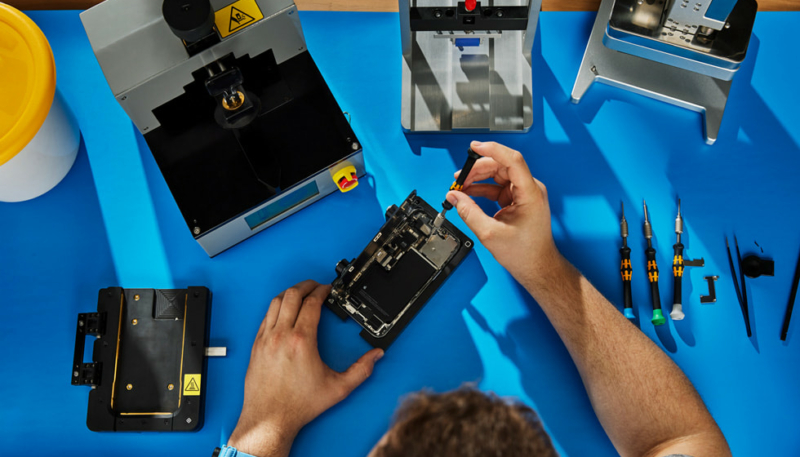Apple today announced its plans to expand its existing repair processes to allow customers and independent repair providers to utilize genuine used Apple parts in repairs.
In a statement to The Washington Post, Apple said the new policy will initially apply to parts for iPhone 15 models and newer, including screens, batteries, and cameras. In addition, the policy will also apply to used biometric sensors for Face ID and Touch ID. Apple’s parts “pairing” process will determine whether or not a used part is genuine and can be used to make repairs.
Apple says the new process is designed to maintain an iPhone user’s privacy, security, and safety. It is also designed to offer consumers more options while minimizing the environmental impact of a repair.
“At Apple, we’re always looking for new ways to deliver the best possible experience for our customers while reducing the impact we have on the planet, and a key part of that means designing products that last,” said John Ternus, Apple’s senior vice president of Hardware Engineering. “For the last two years, teams across Apple have been innovating on product design and manufacturing to support repairs with used Apple parts that won’t compromise users’ safety, security, or privacy. With this latest expansion to our repair program, we’re excited to be adding even more choice and convenience for our customers, while helping to extend the life of our products and their parts.”
Apple will also extend its popular Activation Lock feature to iPhone parts in order to deter stolen iPhones from being disassembled for parts. Requested by customers and law enforcement officials, the feature was designed to limit iPhone theft by blocking a lost or stolen iPhone from being reactivated. If a device under repair detects that a supported part was obtained from another device with Activation Lock or Lost Mode enabled, calibration capabilities for that part will be restricted.
Apple said the policy will apply to future iPhone models.


